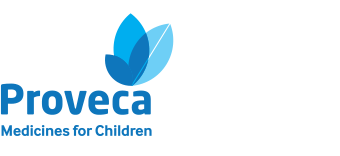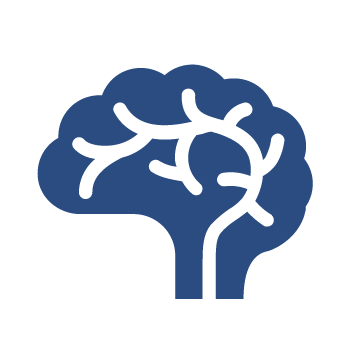Neurology encompasses the study and treatment of disorders related to the nervous system.
At Proveca, we are working to improve the lives of children with chronic neurological disorders, including cerebral palsy and epilepsy.
Cerebral Palsy
Cerebral palsy is a group of permanent disorders of movement and posture, which are the result of disturbed development and/or damage to the foetal or infantile brain.1
Cerebral palsy represents the most common physical disability in childhood and occurs in around 1 in 500 live births.2
How & when is Cerebral Palsy diagnosed?
Diagnosis usually occurs between the ages of 1 and 2 years and is based on clinical signs such as spasticity (muscle rigidity causing stiffness and movement restriction), dyskinesia (uncontrolled, involuntary movements) and ataxia (inability to coordinate muscle activity).2
How does Cerebral Palsy affect people?
While people with cerebral palsy may be affected to varying extents, many encounter activity limitations and other disabling medical conditions.2 Chronic drooling can sometimes be present, and it has been acknowledged that approximately 1 in 5 children with cerebral palsy experience this.2 For further information on chronic drooling, please click here.
Epilepsy
Proveca are currently focused on the development of paediatric medicines for the treatment of epilepsy in children, to improve seizure control and quality of life.
What is the prevalence of epilepsy in children?
Characterised by a chronic predisposition to seizures, epilepsy is the most frequently occurring chronic neurological condition in childhood, affecting 0.5% to 1% of children.3
Effects of epilepsy & treating epilepsy in children
The aim of epilepsy treatment is to minimise or control (reduce, or ideally stop) seizures; however, up to 30% of children do not become seizure free, despite use of antiepileptic medicines.4 Epilepsy treatment in children should be individualised, taking into account seizure type, epilepsy syndrome, need for treatment, concomitant medication, existing medical conditions, treatment preferences, age, sex and personal/lifestyle factors.
Proveca are developing new paediatric appropriate formulations of anti-epileptic medicines, to improve medication adherence, seizure control and quality of life.
References:
- Rosenbaum P, et al. Dev Med Child Neurol Suppl. 2007;109:8-14.
- Novak I, et al. JAMA Pediatr. 2017;171:897-907.
- Aaberg KM, et al. Pediatrics. 2017;139(5). doi: 10.1542/peds.2016-3908.
- Aaberg KM, et al. Pediatrics. 2018;141(6). doi: 10.1542/peds.2017-4016.

